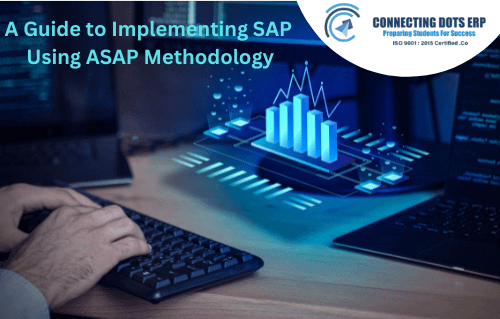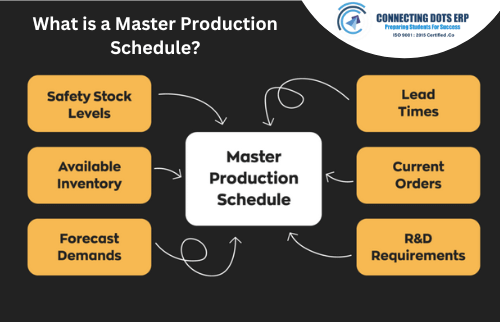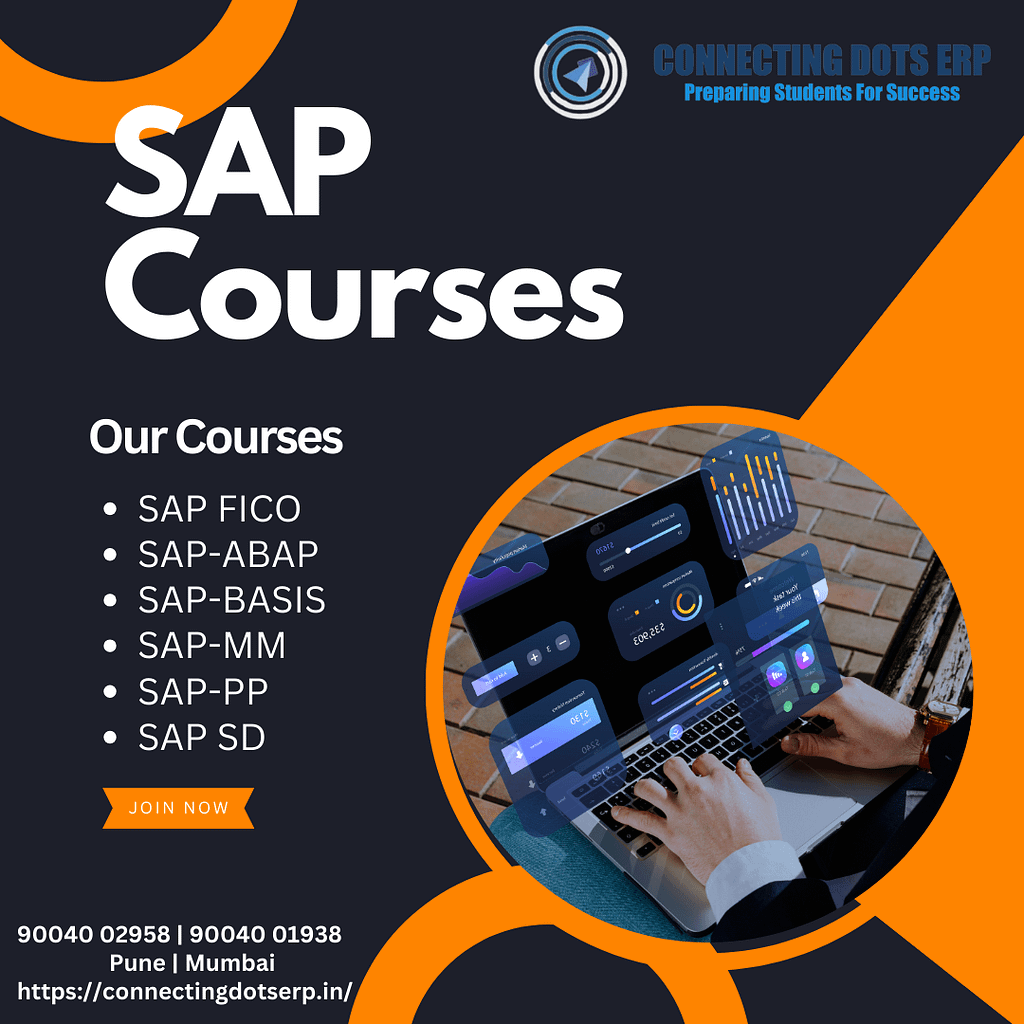How To Become an SAP Consultant (With Duties and Skills)
By the year 2025, demand for SAP consultants will grow tremendously as organizations will want solutions for streamlining business processes and improvements in customer service. Most companies are adopting SAP consultants to create tailored SAP solutions for their needs. If becoming an SAP consultant is your goal, you should be well aware of the duties and skills involved. This article has therein detailed on what an SAP consultant does, a step-by-step process on how to become one, and the benefit of taking a really good SAP course in Pune or Mumbai, such as offered by Connecting Dots ERP.
What Is an SAP Consultant?
SAP consultants leverage their in-depth knowledge of SAP systems to analyse client requirements and recommend tailored solutions. Their responsibilities include:
- Configuring SAP systems to address specific business needs.
- Optimizing SAP system performance.
- Ensuring seamless integration of SAP solutions with existing systems while prioritizing data security.
- Migrating existing data to SAP systems.
SAP consultants also conduct training sessions, troubleshoot technical issues, and assist clients with project planning, budgeting, and implementation. They are pivotal in enabling businesses to harness the power of SAP solutions effectively.

Related: How to Start Career in SAP with Upcoming Trends in 2025?
How SAP Can Help You Land Your Dream Job?
What is Roadmap to Become a SAP Consultant in 2024?
How To Become an SAP Consultant?
Here’s a step-by-step guide to embarking on a rewarding career as an SAP consultant:
- Get a Formal Education A bachelor’s degree in computer science, information systems, or a related field is typically the minimum qualification. Pursuing an MBA with a focus on information systems or technology management can further enhance your career prospects. Graduates of SAP courses in Mumbai offered by Connecting Dots ERP are well-equipped to take on roles such as SAP project manager, SAP solution architect, and SAP technical lead.
- Complete Certification Programs Certification enhances your proficiency in SAP modules and increases employability. Some of the most sought-after certifications include:
- SAP Certified Technology Consultant.
- SAP Certified Application Associate – SAP HANA 2.0.
- SAP Certified Application Associate – SAP S/4HANA for Management Accounting Associates.
Connecting Dots ERP provides industry-recognized SAP training programs that prepare you for these certifications.
- Gain Hands-On Training Practical experience is invaluable for aspiring SAP consultants. You can achieve this by:
- Joining internships or entry-level roles to assist senior consultants in tasks like data analysis and project planning.
- Working part-time or freelancing on SAP implementation, support, and integration projects.
- Participating in SAP-related initiatives in your current organization.
- Engaging with online SAP communities and forums to learn from experts.
- Update Your Resume Craft a resume that highlights your certifications, work experience, and key accomplishments. Use action verbs and quantifiable results to showcase your impact. For instance, detail how you optimized an SAP system, leading to increased efficiency or reduced costs. Connecting Dots ERP’s SAP courses also include personality development and resume-building workshops to enhance your career readiness.
- Network with Industry Professionals Attending events like SAP Sapphire and SAP TechEd can help you stay updated on industry trends. Following SAP experts on social media and building connections can also open doors to new opportunities.
Related: Which Are Top 10 Companies Hiring SAP EWM Professionals with Salaries?
Duties of an SAP Consultant
An SAP consultant’s responsibilities include:
- Analysing business requirements and designing tailored SAP solutions.
- Configuring SAP systems based on client needs.
- Testing and ensuring system functionality.
- Providing end-user training and ongoing support.
- Conducting system audits to identify areas for improvement.
- Collaborating with cross-functional teams to implement SAP projects successfully.
- Maintaining documentation, including system design specifications and user manuals.
- Staying updated on SAP trends and best practices.
- Troubleshooting technical issues.
- Recommending system improvements to clients.
Skills Required for an SAP Consultant
To excel as an SAP consultant, you need a mix of hard and soft skills:
- Knowledge of SAP Modules: Familiarity with modules such as SAP Financial Accounting (FI), SAP Controlling (CO), SAP Sales and Distribution (SD), SAP Materials Management (MM), and SAP Production Planning (PP) is crucial for delivering customized solutions.
- Programming Expertise: Proficiency in Advanced Business Application Programming (ABAP) is essential for customizing SAP solutions, troubleshooting issues, and integrating workflows.
- Analytical Skills: Strong analytical abilities help in breaking down complex business requirements into actionable solutions.
- Communication and Collaboration Skills: Effective interaction with clients, project teams, and stakeholders ensures smooth implementation and optimization of SAP systems.
Related: Top 20 Interview Questions for SAP FICO Professionals?
The Demand for SAP Consultants in 2025
As businesses continue to adopt SAP solutions to stay competitive, the demand for skilled SAP consultants is poised to grow exponentially. Professionals trained at reputed SAP training institutes in Pune like Connecting Dots ERP in Pune and Mumbai will be in high demand due to their hands-on experience, industry-aligned curriculum, and globally recognized certifications.
Enrolling in an SAP course in Mumbai through Connecting Dots ERP is a smart investment in your career. With experienced trainers, state-of-the-art facilities, and a robust placement program, you can confidently step into the role of an SAP consultant and meet the demands of this dynamic field in 2025 and beyond.









